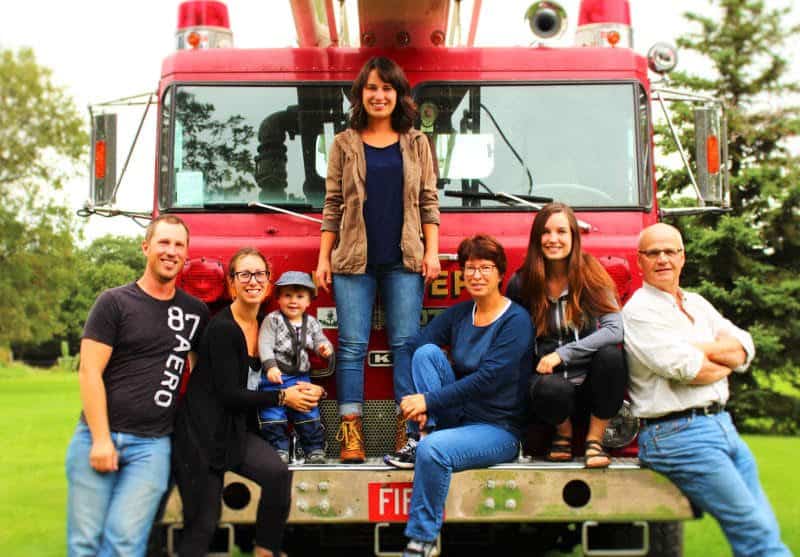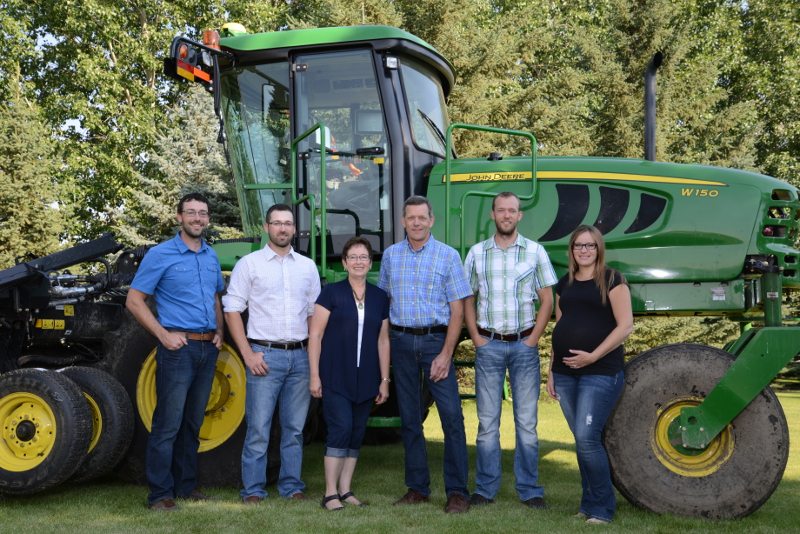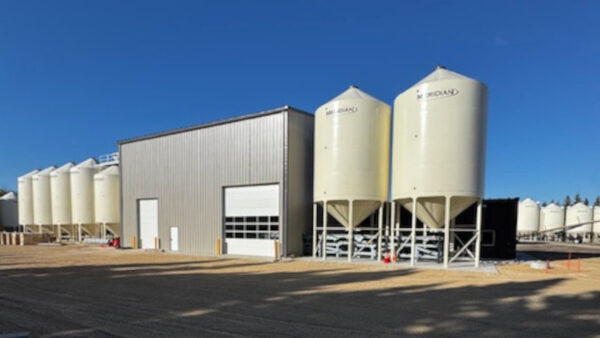
Successfully navigating the pitfalls that are unique to family enterprises can reap great benefits for everyone involved.
We all know the saying, “You can pick your friends, but you can’t pick your family.”
And for many people, the idea of working with family members would solicit a resounding response of “No, thank you!”
However, for others, they wouldn’t have it any other way. Simon Ellis is one of these individuals. As owner and sales manager at Ellis Seeds, a fourth-generation family seed retailer in Wawanesa, Man. (54 km southeast of Brandon), he says, “Working with family is very rewarding.”
Ellis graduated from Assiniboine Community College in Brandon in 2013. It was at that point he assumed more responsibility at his family’s company.
“I currently work with my dad and mom, who are slowly stepping back from the business,” he explains. “My role has reached a point where I am making the majority of the business decisions. I focus on developing new business relationships, logistics, and running day-to-day tasks with help from our employees.”
In 2015, Simon’s wife Amanda joined Ellis Seeds and is responsible for the financial and administrative side of the business. Recently, her father also came onboard, bringing with him many years of sales and management experience.
“Our family is very fortunate in that everyone can communicate with each other very well,” says Ellis. “There is a trust that you wouldn’t find with other employees. The biggest challenge is the fear of damaging a strong family relationship; businesses can be stressful during challenging times. It is important to remember everyone wants what is best for the family and business.”
This is the same belief that has endured for nearly a century when Ernest Ellis (Simon’s great-grandfather) started Ellis Seeds in 1923. At that time, Ernest shipped grass seed across the prairies because of the need to provide a quality product and produce productive land. Since then, Frank (Ernest’s son) took the reins, followed by his son, Warren, who is Simon’s father.

“We take pride in that our product has flowed through all four generations,” says the younger Ellis.
Need to Communicate
However, the journey has not been without its challenges, which is why he says communication is the most important thing you can do to navigate working in a family business.
“Express your concerns before they build into something bigger, and continually express gratitude to your family members for supporting you and the business. They are working hard to support you, and if a mistake is made, it was a mistake and there are more important things in life.”
Have Some Compassion
Rick Stamp is the owner and patriarch of Stamp Seeds, a family owned and operated pedigreed seed farm in Enchant, Alta., located approximately 77 km northeast of Lethbridge.
“Working with family is the most envious position to be in, when each person and — in turn — the family as a group, can figure out how to make it click,” says Stamp. “On the other side of the coin, this can be the very worst position to be in as a family, as many family operations do not survive, and this can ultimately break families apart.”
It was back in 1979 that Stamp decided he wanted a career in farming. Prior to this, he had gone to college and became a steam engineer, but realized that wasn’t what he wanted.
“It was a great learning experience, but I then had a chance to purchase two quarters of land. I applied for a beginning farmers loan from AFSC, which I was able to secure,” he recalls. “In hindsight today, I was very ill-prepared, with a lack of business knowledge and no capital. But what I did have was a lot of ambition, the ability to dream, to learn every day and, at the same time, was not afraid to put in the hours to make it happen.”
Since 1980, Stamp and his wife Marian have worked together as partners. Their three sons, Greg, Matthew and Nathan also work full time in the business, plus two of Marian’s first cousins, who have worked at Stamp Seeds for more than a decade.
Stamp says his company has been successful largely due to deep-down compassion the family has for one another.
“We are concerned what is happening in everyone’s lives, what we are having to deal with, and what can we do to help each other be successful and satisfied in their work and personal lives. If we do this for each other as a family, this translates to all other individuals who work in your business building a great operating environment. This then radiates out to everyone else our group deals with.”
Pitfalls and Conflicts
There are a number of possible conflicts that can arise in a family business (or any business, for that matter), according to Francine Carlin, principal of the Business Harmonizer Group, an advisory and consulting firm based in Vancouver. Some of these tend to be more unique in a family business enterprise such as:
- lack of communication
- lack of trust in decision making
- not having clear roles or job descriptions
- lack of education
- little or no shared experiences within the family or the business
- a sense of entitlement
- not understanding the impact of the family dynamic role in shaping the future of the business

Carlin is dedicated to helping family-business owners and members develop meaningful solutions for resolving the issues and concerns that have become roadblocks to critical decision making. She has found that in her transition from corporate work to working with family enterprises, many issues can be much more complex in nature.
For instance, in working with those in the agriculture industry, Carlin says many family farms are struggling.
“And the legacy is even more emotional because it’s tied to the land. I worked with one family who still had the land since 1882 and, somehow, by blood, sweat and tears, they kept it in the family. There are a lot of deep stories in the family enterprise. It takes a lot of emotional energy to change.”
Carlin says what she enjoys most is helping to facilitate a shared understanding of complex issues by separating the person from the issue.
“It is important to have regular family business meetings with an agenda and often facilitated by a neutral party. It is also important to establish some form of governance that could facilitate shared understanding and family harmony, so that all impacted are clear about policy, roles and expectations. Hold regular financial reporting and business planning outcomes with nonactive family owners. The more family members working in the business, the more vital it is to ensure that everyone is clear on roles, responsibilities and expectations.”
Carlin adds that for those individuals who are considering starting a family business or joining a family business that has already been established, she offers this advice.
“Understand the amount of work and commitment that’s required to be successful. Build a foundation of trust and establish financial and business management best practices. And spend time nurturing and supporting a positive family dynamic.”
Stamp couldn’t agree more: “Build a workable, functional, and most importantly ‚Äòaccountable‚Äô business structure, for everyone to work inside of. Individuals are paid for showing up on time to work every day, and for what they bring to the business — not because of who they are. If you can’t get the job done, you should not be part of the team. I believe if you want others to join your business — direct family or not — ask yourself why would anyone want to be involved where there is constant conflict, lack of respect and unhappiness.”
Adds Ellis: “Have the tough conversations before starting or joining in. Know where everyone stands and what their goals are. Identify and deal with challenges before they come up. The most important thing here is family and you must protect that at all costs.”












